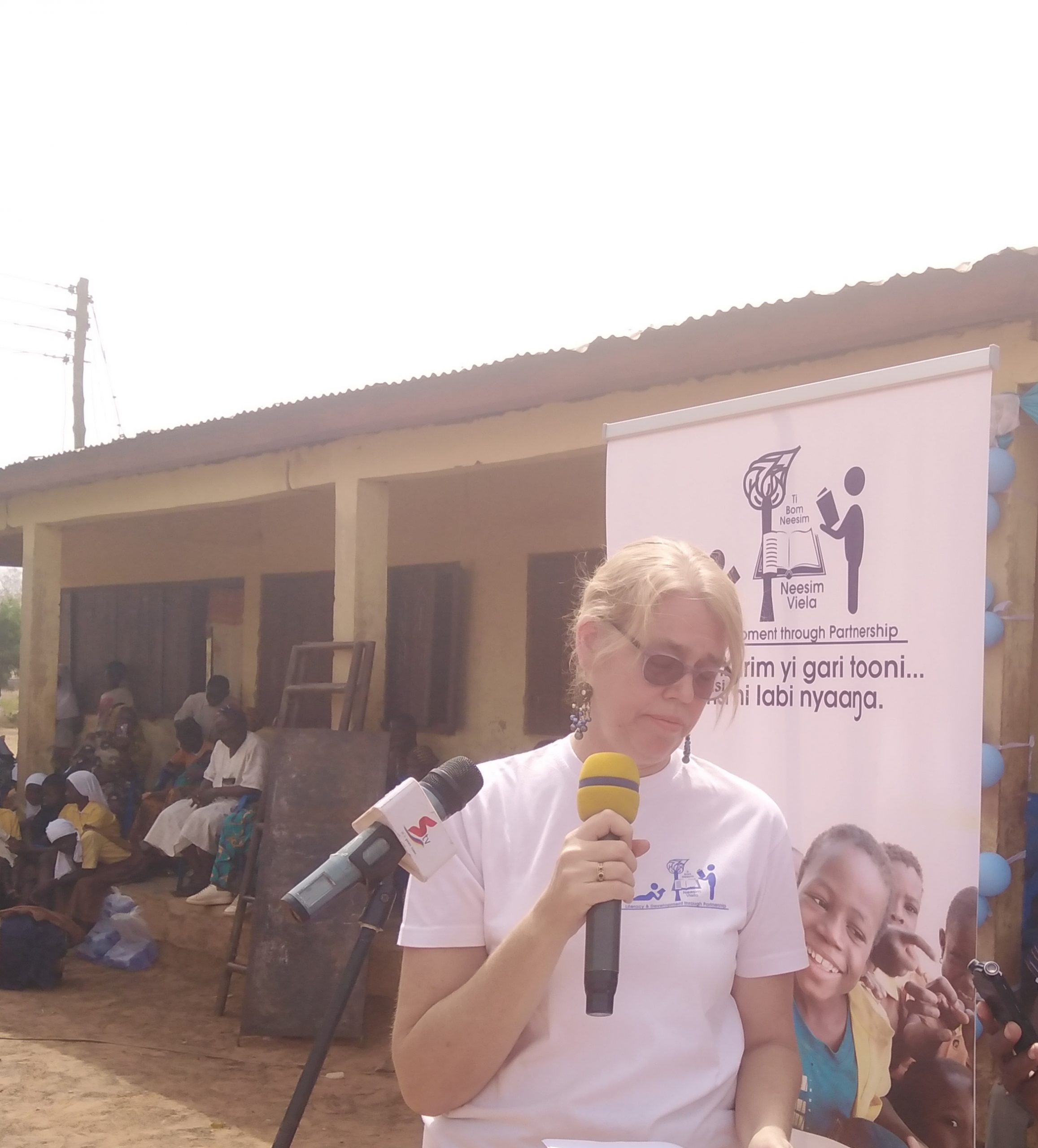A literacy consultant with Literacy Development and Partnership Program (LDP), Mrs Yoke Yakubu has expressed worried about the dwindling of local language, especially Dagbanli proficiency in Dagbon.
Mrs Yoke noted that many of the educated Dagombas might not even be able to speak Dagbanli very well anymore which does not auger well for literacy development and people’s culture.
She explained that reading and speaking once own language very well will enable you to write your history, the tradition and festival of the Dagombas.
‘Let’s not look at what it will cost to teach children to speak and write Dagbanli, let’s look at what it will cost if you don’t do it; My plead to parents is propagate the importance of teaching and learning of mother tongue as a bases for further education’.
Literacy lvele she said, are so low and that’s because they are not thought to read and write Dagbanli but rather English.
Studies she added reveals that, if children are help to read and write their mother tongue, it becomes much easier to make transition to second language which is English in Ghana.
She suggested more awareness in schools, among ommuniy members, among parents and even among the children because the assumption is that the children speak it well but they can’t read and write.
She called on the Ghana Education Service to come clear on the medium of instruction in schools because confusion ensued sometimes in the school over which language should be use.
She also appealed to the government to introduce programs and very good learning materials so that throughout the region or the entire Dagbon can have one metherdology.
She pleaded with parents in Dagbon not to be worried out cost of teaching their children properly but rather consider negative impact and effects it will have on their children if they reneged on their responsibilities.
She also challenged parents to put all their efforts and all resources into it and not waiting for others to come do it for them.
Speaking at the celebration of two-years impact of Literacy Development and Partnership program at Mbanaayili in the Kumbungu district, Mrs Yoke urged the people of Dagbon to try to battin their shirts correct way because batting it wrong way will negatively affect the traditions and culture.
Studies, she added reveals that only about 20% of children in primary school can read English and their mother tongue.
In the Kumbungu district, 90% of children could not read. But with the intervention of LDP, there is tremendous improvement in reading among kindergarten and primary 2 pupils, Mrs Yoke said.
A based line study conducted two years ago, she added indicated that people who master their mother tongue did well in school.
Mrs Yoka said stakeholders such as parents and the Ghana Education Service (GES) must collaborate because donors are no more, hence the need for concerted effort.
The government she observed is doing its best but its best is not enough.
She called on chiefs and traditional leaders advocate the teaching and learning of Dagbanli. She noted that some elite Dagombas can’t even speak or write Dagbanli properly.
Touching on the new curriculum, Mrs Yoke applauded the policy but calls for clarity on it.
She explained that instead of the policy to be specific, it rather confused stakeholders more when it put literacy skills and other local languageas.
Information about the new curriculum has not gone down well to people and is creating creating a lot confusion at the colleges of education and schools.
Programs Manager of LDP, Mr Abdulai Wumbei Elihu pleaded with partners to improve the well-being of their children.
She told parents that even though LDP was started over 30 years ago purposely for adult illiteracy, it has moved beyond adults to children because of the literacy deficit at the lowwr level.
The program, Mr Wumbei explained now operates in Yendi, Mion, Kumbungu and Tolon District.


